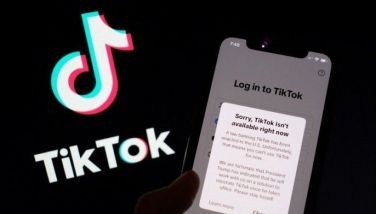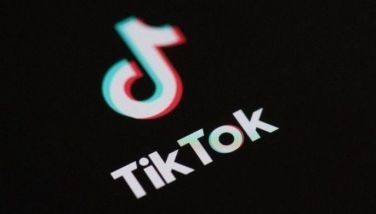The mystery of the missing text
May 24, 2002 | 12:00am
Have you ever experienced "The Mystery of the Missing Text"? Ever heard your friend swear he sent you a text message and you swear back that you never received it? Such is a fact of our wireless life, text messages go missing.
You may sometimes call cellular phone text messages as the mayflies of technology. They have infamously short lifespan, 24 hours typically, and leave little evidence of their passing. The reason is that text messages are a victim of their own success. According to the GSM Association, the mobile phone industry’s trade body, 30 billion text messages a month are now being sent. This was far more than was ever envisioned when SMS was developed. Nobody ever thought that bored commuters would be sending messages. Certainly, the phone companies did not predict the boom and, as a result, their technology often cannot cope with the huge SMS traffic. No one has figures on how many SMS messages go astray, largely because it has not been possible to actually track them. Thus, it would be hard for the telecom operators to give a guarantee for something they had no control of.
There are many places in the mobile network that could kill your message. The first possible bottleneck is the part of the cellphone spectrum over which the messages travel. They share the same part that controls the starting and stopping of a cellular call. Since it was never envisioned that SMS was going to be a hit, SMS was only allocated a minute portion of that spectrum. As such, when there is an abundance of text messages, you encounter difficulties making your voice calls and the SMS Center goes amok. The second is the hardware in every cellular network that coordinates the sending of text messages – the SMS Center itself. When you send a text message, your handset talks to the SMS Center and asks it to pass on your text. The SMS Centers are simply too small to cope with the volume of messages passing through them. Lastly, there are the buffers that are located in the base stations. When a text gets passed on, the SMS Center contacts the base station nearest your cellphone and asks it to contact your phone and pass on the message. However, if the buffer on a base station is full then it will not accept any more messages and the SMS Center will have to try again later. An SMS Center would typically try to resend a message 20-40 times over the 24-hour lifespan of a text message.
When it was only consumers sending messages to each other, operators did little to improve the way they handled messages. After all, they had already billed the client for the message so they lost nothing by it going astray. But, with increased competition among the telecom operators and the advent of time-critical, value-added services, the cost of such failure would disastrously impact both on an operator’s potential revenues and credibility. It’s now becoming increasingly unacceptable for those messages, perhaps, to be undelivered or delayed. Now, some operators are splitting their SMS messages out of the cellular network altogether to ensure their delivery. Also starting to appear are pieces of hardware that can cope with the avalanches of messages that radio, TV shows, mobile games and promos can generate.
If you’re one of those slow text message tappers like me, help could soon be at hand. I just recently learned that a US company has redesigned the traditional 12-number keypad to give every letter and number its own key. Its developer, Digit Wireless, claims that typing a text message with the novel keypad is twice as fast as other methods. The design fits 26 letters of the alphabet, the * and #, 10 numbers, three punctuation keys, a space bar, shift and delete key into an area no larger than one-third of a business card. The letters sit on raised bumps between the rounded number and punctuation keys. Let’s see how this new layout helps my tapping speed when it makes its debut next year.
(Patrick R. Garcia is managing director of Bidshot Wireless Services. For comments or suggestions, text your message to 233011(Globe) or 243011(Smart) or e-mail [email protected])
You may sometimes call cellular phone text messages as the mayflies of technology. They have infamously short lifespan, 24 hours typically, and leave little evidence of their passing. The reason is that text messages are a victim of their own success. According to the GSM Association, the mobile phone industry’s trade body, 30 billion text messages a month are now being sent. This was far more than was ever envisioned when SMS was developed. Nobody ever thought that bored commuters would be sending messages. Certainly, the phone companies did not predict the boom and, as a result, their technology often cannot cope with the huge SMS traffic. No one has figures on how many SMS messages go astray, largely because it has not been possible to actually track them. Thus, it would be hard for the telecom operators to give a guarantee for something they had no control of.
There are many places in the mobile network that could kill your message. The first possible bottleneck is the part of the cellphone spectrum over which the messages travel. They share the same part that controls the starting and stopping of a cellular call. Since it was never envisioned that SMS was going to be a hit, SMS was only allocated a minute portion of that spectrum. As such, when there is an abundance of text messages, you encounter difficulties making your voice calls and the SMS Center goes amok. The second is the hardware in every cellular network that coordinates the sending of text messages – the SMS Center itself. When you send a text message, your handset talks to the SMS Center and asks it to pass on your text. The SMS Centers are simply too small to cope with the volume of messages passing through them. Lastly, there are the buffers that are located in the base stations. When a text gets passed on, the SMS Center contacts the base station nearest your cellphone and asks it to contact your phone and pass on the message. However, if the buffer on a base station is full then it will not accept any more messages and the SMS Center will have to try again later. An SMS Center would typically try to resend a message 20-40 times over the 24-hour lifespan of a text message.
When it was only consumers sending messages to each other, operators did little to improve the way they handled messages. After all, they had already billed the client for the message so they lost nothing by it going astray. But, with increased competition among the telecom operators and the advent of time-critical, value-added services, the cost of such failure would disastrously impact both on an operator’s potential revenues and credibility. It’s now becoming increasingly unacceptable for those messages, perhaps, to be undelivered or delayed. Now, some operators are splitting their SMS messages out of the cellular network altogether to ensure their delivery. Also starting to appear are pieces of hardware that can cope with the avalanches of messages that radio, TV shows, mobile games and promos can generate.
(Patrick R. Garcia is managing director of Bidshot Wireless Services. For comments or suggestions, text your message to 233011(Globe) or 243011(Smart) or e-mail [email protected])
BrandSpace Articles
<
>
- Latest
Latest
Latest
January 19, 2025 - 12:39pm
By Alex Pigman | January 19, 2025 - 12:39pm
January 19, 2025 - 10:05am
By Alex Pigman | January 19, 2025 - 10:05am
January 6, 2025 - 11:05pm
January 6, 2025 - 11:05pm
December 1, 2024 - 3:59pm
December 1, 2024 - 3:59pm
Recommended
February 15, 2025 - 12:00am

























